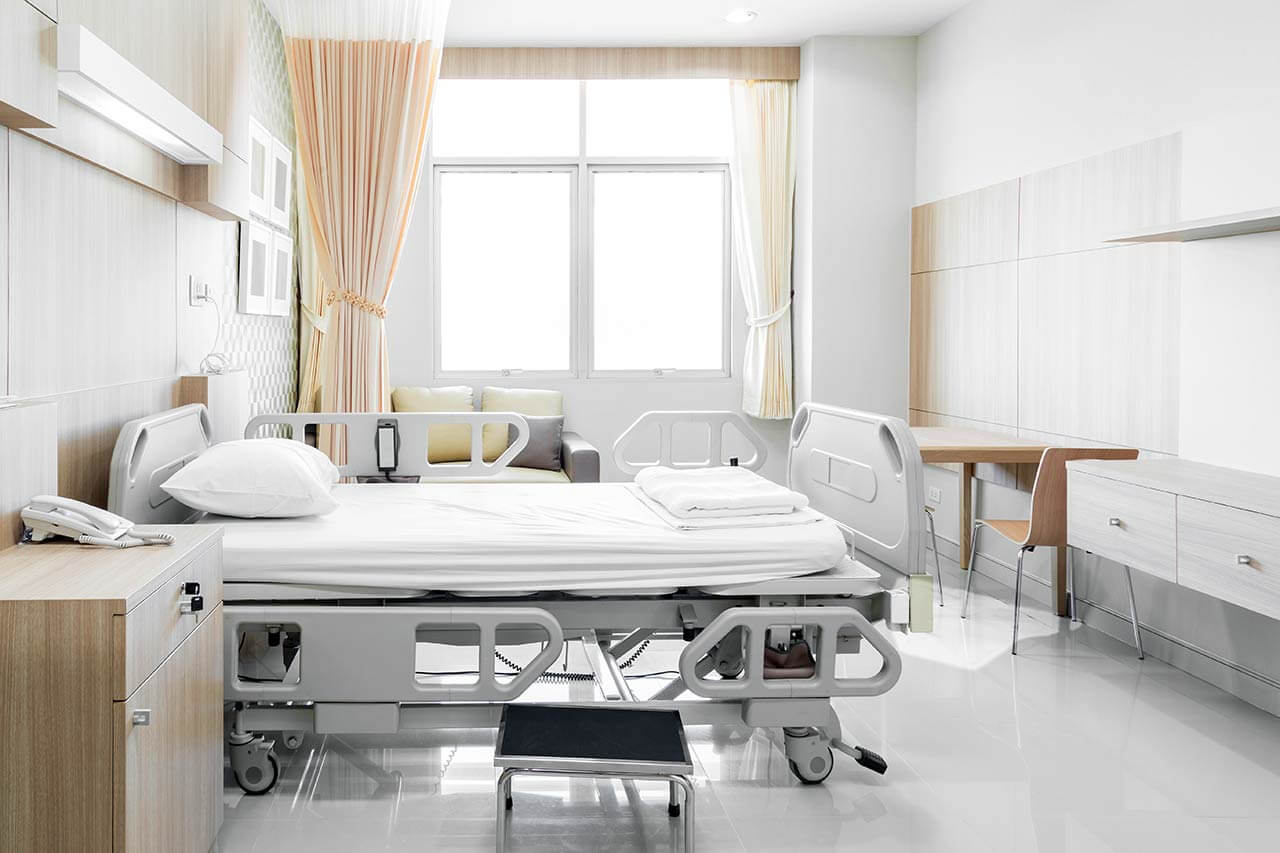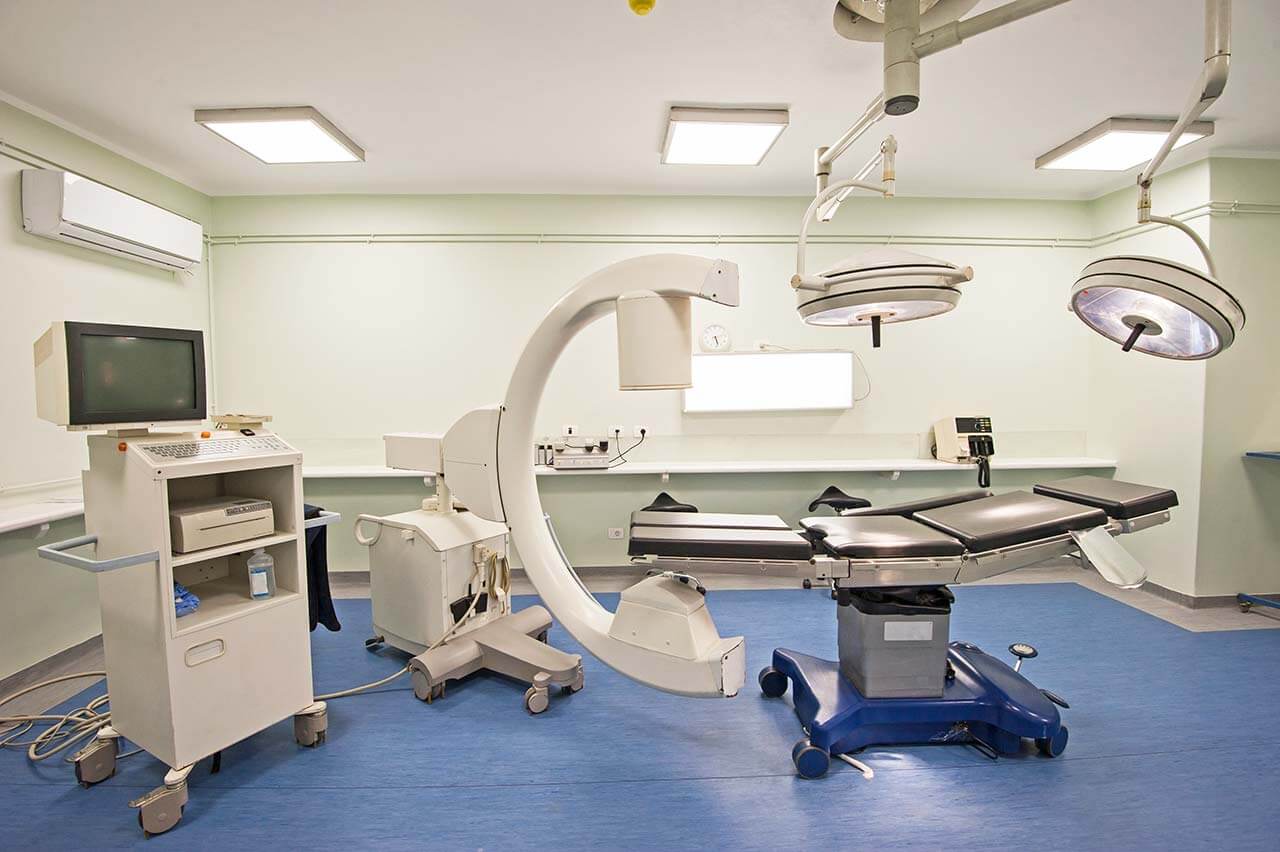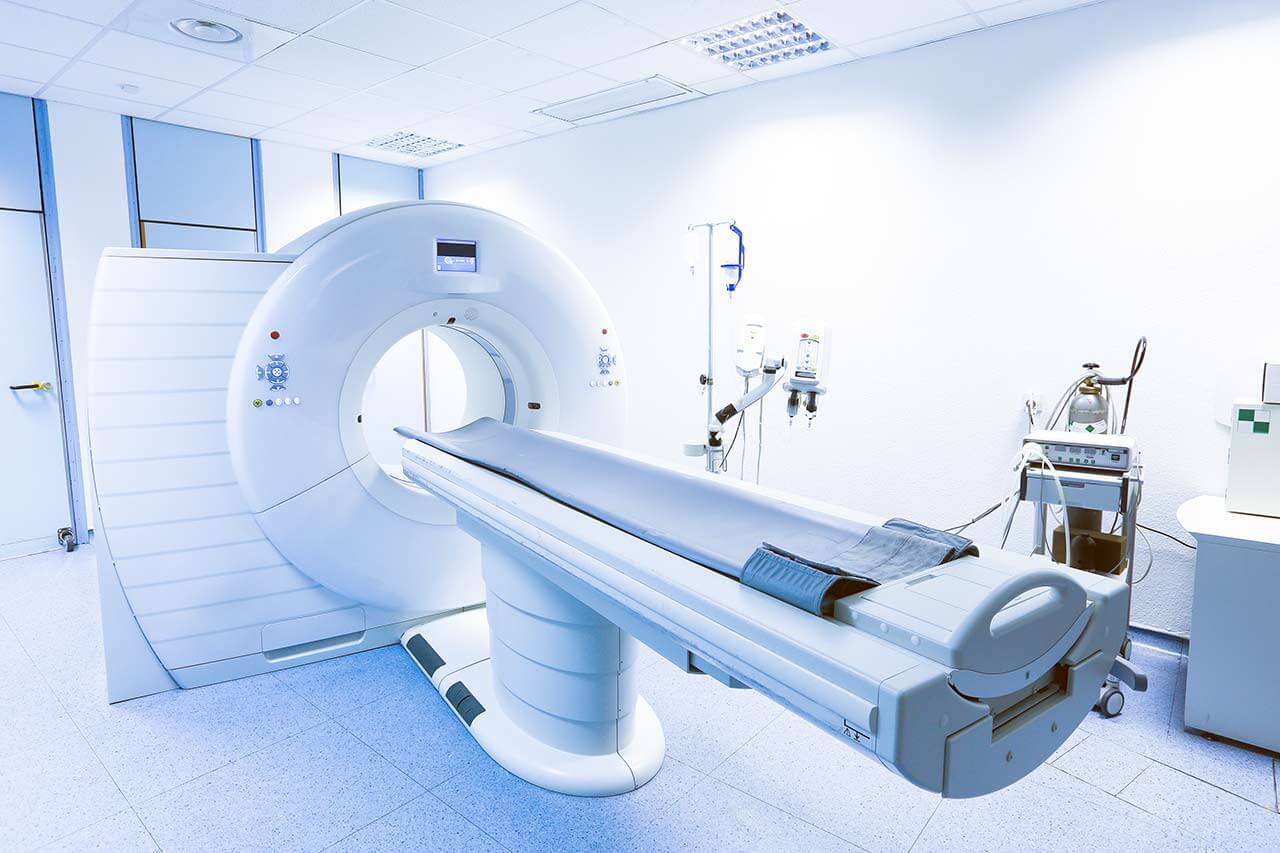
The program includes:
- Initial presentation in the clinic
- clinical history taking
- review of medical records
- physical examination
- laboratory test:
- lipid profile
- Fasting glucose and HbA1c
- thyroid function test
- BMI calculation
- ultrasound of the abdomen
- nursing services
- consultation of related specialists
- consultation of the chief physician and all leading experts
- development of individual treatment plan
- written statement
Required documents
- Medical records
Service
You may also book:
 BookingHealth Price from:
BookingHealth Price from:
About the department
The Department of Bariatric Surgery at the Helios Hospital Berlin-Buch offers the comprehensive treatment for morbid obesity. It annually treats about 1,000 patients suffering from overweight and its complications. Each patient is provided with an individual approach. As a rule, the therapeutic program includes a complete lifestyle modification and specialized surgical measures, but in some cases only conservative treatment is enough. The specialists of the department regularly demonstrate high rates of effective treatment, and therefore the department is rightfully considered the largest and leading medical facility of its kind. The department is headed by Dr. med. Oliver Stumpf.
The basis and the first stage of treatment is the correction of the diet, the implementation of a special program of physical exercises, as well as a change in eating behavior (the exclusion of overeating, including due to stress and other bad habits). In case of severe obesity, weight can be reduced by surgery. The operations are performed in interdisciplinary cooperation with experts in the field of general and abdominal surgery, endocrinology and diabetology, plastic and aesthetic surgery. As a rule, all weight loss surgeries are performed with the help of sparing minimally invasive techniques that ensure the patient’s fastest recovery.
The department specializes in the following surgical interventions:
- Gastric banding. The procedure involves the application of a bandage to the upper stomach. The bandage is a ring that narrows the lumen of the stomach, thereby dividing it into two sections – a small stomach, above the bandage, and a large stomach, under the bandage. Thus, the doctors manage to significantly reduce the patient’s hunger, as a result of which he begins to lose excess weight.
- Sleeve gastrectomy. The essence of surgical intervention is to create a narrow gastric "sleeve" that will slow down the passage of solid food in the area from the esophagus to the pyloric stomach. Sleeve gastrectomy involves the removal of the body and the bottom of the stomach. There remains a narrow passage – a sleeve along the lesser curvature of the stomach. As food moves through a narrow and long stomach, it overcomes high resistance and lingers in the stomach for a long time. As a result, even if a person ate a small amount of food, he has a persistent feeling of fullness. This intervention can reduce weight by 75-80%.
- Gastric bypass surgery. The operation aims to create a small reservoir in the upper part of the stomach that can accommodate only a small amount of solid food. The next step is the formation of the bypass, along which the food eaten by the patient bypasses most of the stomach and part of the small intestine. This intervention can reduce weight by 80-85%. This operation is especially effective in patients with type 2 diabetes.
- Mini gastric bypass surgery (Omega-loop gastric bypass). This is a relatively new treatment for obesity. Unlike standard gastric bypass surgery, the surgeon forms one less intestinal anastomosis during this procedure, and therefore the risk of complications, for example, hernia formation, can be reduced. Surgery is also an excellent treatment option for patients with type 2 diabetes.
- Other surgical techniques
Curriculum vitae
Since June 15, 2019, Dr. med. Oliver Stumpf has been heading the Department of Bariatric Surgery at the Helios Hospital Berlin-Buch. The specialist received his medical education at the Faculty of Medicine of the Free University of Berlin. Prior to taking up the position of Senior Physician and then Head of the Department of Bariatric Surgery at the Helios Hospital Berlin-Buch in April 2018, Dr. Oliver Stumpf worked as a Senior Physician of the Department of General, Abdominal and Thoracic Surgery at the Hospital Lippe Detmold. At the same hospital, he founded the Obesity Center. From 2013 to 2018, he was a Managing Senior Physician at the Center for Bariatric Surgery at the Vivantes Hospital Spandau Berlin.
Dr. Oliver Stumpf has been treating obesity for many years and therefore has unique experience in this field. Since 2008, the specialist has performed more than 2,000 successful bariatric interventions.
Dr. Stumpf is a Member of the German Society of Surgery (DGC) and the German Society for General and Abdominal Surgery (DGAV).
Photo of the doctor: (c) Helios Klinikum Berlin-Buch
About hospital
According to the reputable Focus magazine, the Helios Hospital Berlin-Buch ranks among the top medical facilities in Germany!
The hospital is proud of its rich history, which dates back over 100 years, as well as the status of a maximum care medical center with exceptionally high success treatment rates. The medical institution is an academic hospital of the Charite Medical Complex, which is one of the best in Europe and around the world. To provide its services to patients, the hospital has over 1000 beds, over 60 specialized departments, centers and institutes, including emergency service and a helipad, as well as 23 state-of-the-art operating rooms.
The medical institution presents almost all branches of modern medicine, many of which are certified by professional German societies (for example, certification of the German Cancer Society, German Diabetes Society).
The hospital diagnoses and treats about 52,000 inpatients and more than 144,000 outpatients every year. The medical services and patient care are provided by world-renowned highly competent doctors and qualified nursing staff. To achieve the best treatment results, the doctors of related medical disciplines work closely together and jointly develop optimal treatment regimens.
It is worth noting that the hospital is located in a beautiful green park area. In the immediate vicinity of the hospital one can find Buch Castle, Buch Forest and Barnim Nature Park. All this has a beneficial effect on patients, as they have the opportunity to stroll through beautiful places that inspire and help to gain strength for the successful overcoming of the therapeutic process.
Photo: (c) depositphotos
Accommodation in hospital
Patients rooms
The patients of the Helios Hospital Berlin-Buch live in comfortable rooms made in bright colors. Each patient room is equipped with an ensuite bathroom with shower and toilet. The standard room includes an automatically adjustable bed with a system for calling nursing staff (this system also serves to use TV, radio, lamps), a bedside table, a locker for storing personal belongings, a TV, a radio. The hospital offers WI-FI.
Meals and Menus
The patients of the hospital are offered tasty and balanced three meals a day. Breakfast is served as a buffet with a wide selection of pastries, cereal, sausages and cheese. For lunch, the patients usually have a choice of three menus, including a vegetarian menu. Also, the patient can independently combine a lunch menu from various meat, fish and vegetarian dishes and side dishes. Dinner includes a standard menu and dishes that the patient can choose on his own to his taste.
In addition, the hospital houses a cozy cafe with an excellent assortment of pastries, fresh salads, sandwiches, as well as traditional Berlin dishes. Here you can enjoy a cup of aromatic coffee, hot tea or refreshment drinks.
Further details
Standard rooms include:





